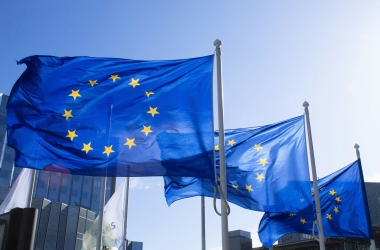European Commission Proposes €40.8 Billion Budget for Erasmus+ Programme
European Commission Proposes €40.8 Billion Budget for Erasmus+ Programme
European Commission Proposes €40.8 Billion Budget for Erasmus+ Programme

https://www.wittenborg.eu/european-commission-proposes-eu408-billion-budget-erasmus-programme.htm
Wittenborg’s Research Centre Projects Set to Benefit from Budget Increase
On 17 July 2025, the European Commission presented its proposal for the Erasmus+ programme for 2028-2034, as part of the European Union’s general budget for the same period. The Commission plans to increase the Erasmus+ budget by around 57% – from about €26 billion in 2021–2027 to approximately €40.8 billion.
The proposed programme will support learning opportunities and mobility from an early age, involving pupils and teachers, vocational learners and staff, as well as higher education students and staff. These initiatives may be accompanied by measures such as language support, preparatory visits, training, virtual cooperation and teaching about the EU, with themes including European integration, values and citizenship.
The programme’s second pillar, capacity-building support, aims to foster cooperation among organisations and institutions. This includes both small-scale partnerships and initiatives by European university alliances, joint study programmes, European Youth Together and sport collaborative alliances. The EU’s general budget proposal is currently under negotiation with the European Parliament and Member States.
According to Wittenborg Research Centre Manager Aydan Holtrigter, the budget increase signals a strong commitment to education, mobility and inclusion. “It’s not just about numbers; it’s about the strategic importance of empowering youth, fostering innovation and strengthening European identity through learning opportunities,” she says.
Holtrigter expects the increase to have a highly positive impact on the Erasmus+ projects Wittenborg is involved in. “The additional funding will allow us to scale up existing projects, launch new partnerships and expand mobility opportunities for students and staff. It also opens doors for more inclusive and digitally enhanced learning environments, which aligns perfectly with our goals at Wittenborg.”
Wittenborg’s Research Centre is engaged in several Erasmus+ initiatives, including strategic partnerships focused on entrepreneurship and SME development, sustainability and digital transformation in education. The school also participates in capacity-building projects in higher education. Last year, Wittenborg launched staff and student mobility initiatives that will support exchanges with European and international partners, addressing areas such as intercultural competence, applied research and innovation in teaching and learning.
Holtrigter explains that Wittenborg’s projects are closely aligned with the Erasmus+ pillars of Learning Opportunities and Capacity-Building Support. “On the learning side, we promote mobility, lifelong learning and the development of digital and green skills. On the capacity-building front, we collaborate with partner institutions to strengthen research, foster innovation and support inclusive education. These efforts contribute directly to the broader goals of Erasmus+, particularly in creating resilient and future-ready educational ecosystems.”
She also highlights the programme’s wider impact. “Erasmus+ fosters cross-border collaboration, cultural exchange and shared values – all of which are essential for a united and innovative Europe. For Wittenborg, Erasmus+ is a cornerstone of our international strategy. It enhances our global visibility, enriches our academic offerings and strengthens our role as a hub for applied research. It’s more than a programme; it’s a catalyst for transformation,” Holtrigter concludes.
WUP 13/10/2025
by Ulisses Sawczuk
©WUAS Press
Tags
#Erasmus+
#research
#SDG4: Quality Education
#SDG17: Partnerships to achieve the Goal
#Internationalisation
#internationalstudent
509 words